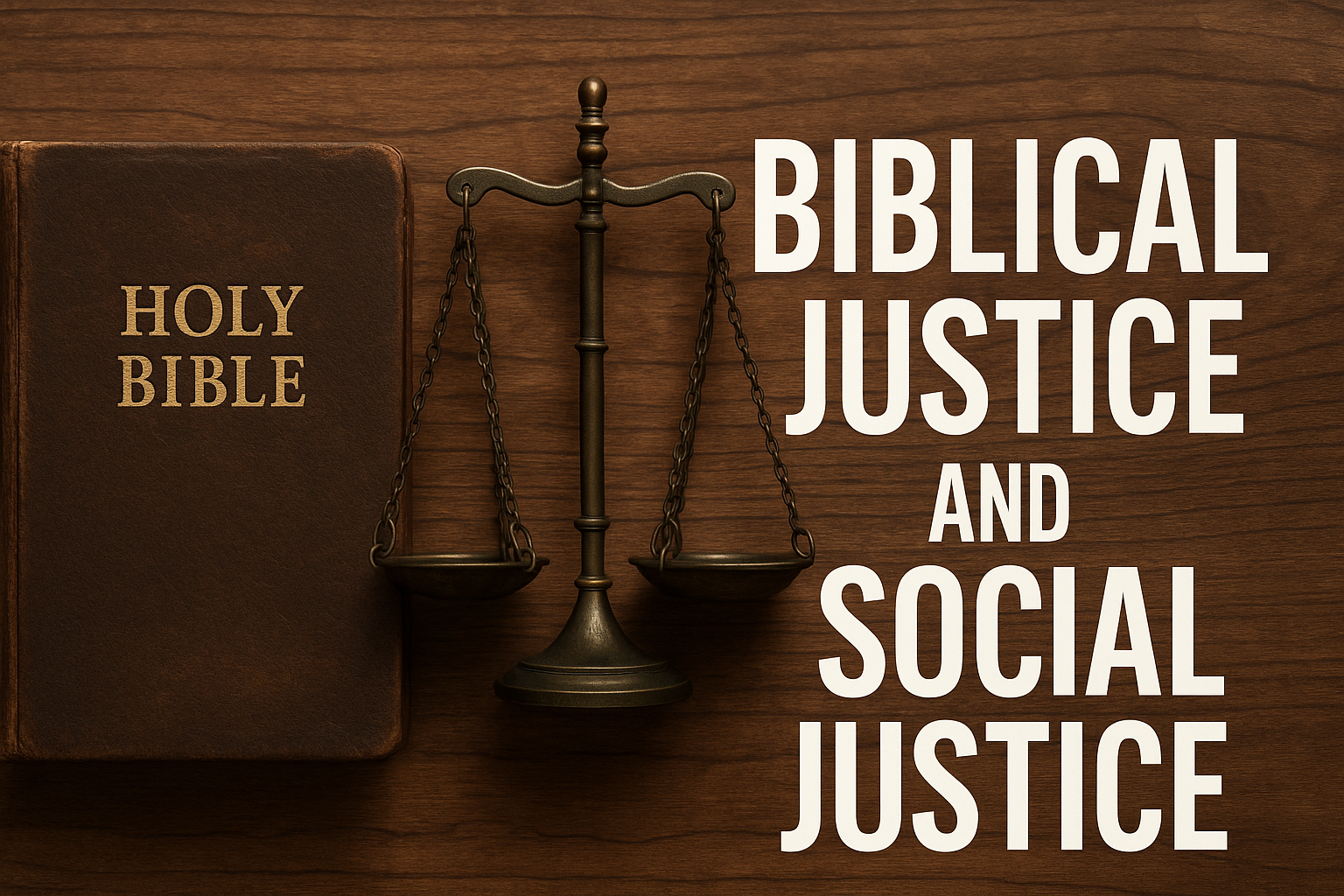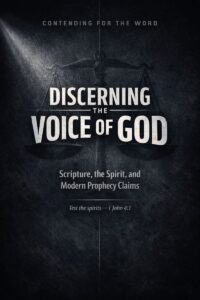⏱️ Estimated Reading Time: 4 min read
Biblical Justice vs. Social Justice: What’s the Difference and Why It Matters
In recent years, the terms “biblical justice” and “social justice” have been used interchangeably—but they are not the same. While both express concern for the vulnerable and oppressed, their foundations, goals, and methods could not be more different. Biblical justice is rooted in God’s holiness, righteousness, and truth. Social justice, by contrast, often draws from secular ideologies that redefine justice according to human agendas. This Q&A aims to clarify the distinction and call Christians to pursue justice as God defines it—through the lens of His Word and gospel.
🚨 The Biblical View of Justice
Biblical justice is grounded in the character of God—He is perfectly just (Psalm 89:14). Throughout Scripture, justice is not merely about fairness but about righteousness. It involves both personal conduct (doing right by others) and societal order (upholding God’s standards in community). True biblical justice involves:
🛡️ Upholding God’s Law
“You shall do no injustice in judgment. You shall not be partial to the poor or defer to the great, but in righteousness shall you judge your neighbor.” — Leviticus 19:15
Justice begins with impartiality and obedience to God’s revealed will—not cultural pressure or favoritism.
🔄 Restoring What Is Wrong
Biblical justice is not merely punitive—it is restorative. It seeks to right wrongs through repentance, restitution, and reconciliation.
⚖️ Ensuring Fairness for All
God calls His people to protect the vulnerable—the poor, the orphan, the widow, and the foreigner—within the framework of His moral law (Deut. 24:17–22).
💔 Addressing Sin at Its Root
Biblical justice doesn’t stop at behavior. It confronts the sinful heart (Jer. 17:9) and calls for transformation through the gospel of Jesus Christ.
❌ The Social Justice Movement
Social justice, as defined today, focuses on perceived systemic inequalities—especially in race, gender, and class. While God indeed cares about the oppressed, the way modern social justice operates often departs from Scripture in significant ways.
Here are four key contrasts between biblical and social justice:
1. Human-Centered Philosophies
Modern social justice draws from critical theory and cultural Marxism. These ideologies elevate human structures and redefine morality based on identity groups, rather than biblical categories.
2. Systems Over Personal Responsibility
Social justice emphasizes external systems and power dynamics. Biblical justice calls for both structural integrity and individual repentance and moral accountability.
3. Equality of Outcome vs. God’s Design
Social justice seeks to enforce uniform outcomes. Biblical justice affirms God’s design for diverse roles and gifts—and does not promise identical outcomes for all (Rom. 12:4–8).
4. Moral Relativism vs. Absolute Truth
Social justice shifts with cultural norms. Biblical justice rests on God’s eternal truth:
“The sum of Your word is truth…” — Psalm 119:160
✅ The Biblical Response
📖 Stand Firm on Scripture
Christians must be guided by God’s Word, not popular movements. True justice flows from the gospel and God’s moral law.
❤️ Care for the Vulnerable Without Compromise
The Bible commands care for widows and orphans (James 1:27), but it also calls for repentance and redemption, not simply structural change.
🙏 Pursue Righteousness and Holiness
Biblical justice aims at heart change, not just policy reform. The Church’s mission is to preach the gospel and make disciples—people transformed from the inside out.
💧 Practice Justice with Mercy
“Justice without mercy is legalism. Mercy without justice is permissiveness.”
Biblical justice walks in the tension of both: truth with grace, correction with compassion.
💬 A Cultural Word of Caution
In today’s polarized world, Christians must be discerning. Cultural trends and social media movements may appeal to emotion, but they often blur biblical categories. The Church must remain faithful—proclaiming justice that flows from the gospel, not from man-centered ideology.
📖 Key Scriptures for Reflection
- Micah 6:8 — “He has shown you, O mortal, what is good. And what does the Lord require of you? To act justly and to love mercy and to walk humbly with your God.”
- Matthew 5:6 — “Blessed are those who hunger and thirst for righteousness, for they will be filled.”
- Romans 12:9–21 — “Let love be genuine. Abhor what is evil; hold fast to what is good.”
- Psalm 82:3 — “Give justice to the weak and the fatherless; maintain the right of the afflicted and the destitute.”
🛠️ Want More?
Recommended Resources:
Dave Jenkins is happily married to his wife, Sarah. He is a writer, editor, and speaker living in beautiful Southern Oregon. Dave is a lover of Christ, His people, the Church, and sound theology. He serves as the Executive Director of Servants of Grace Ministries, the Executive Editor of Theology for Life Magazine, the Host and Producer of Equipping You in Grace Podcast, and is a contributor to and producer of Contending for the Word. He is the author of The Word Explored: The Problem of Biblical Illiteracy and What To Do About It (House to House, 2021), The Word Matters: Defending Biblical Authority Against the Spirit of the Age (G3 Press, 2022), and Contentment: The Journey of a Lifetime (Theology for Life, 2024). You can find him on Facebook, Twitter, Instagram, Youtube, or read his newsletter. Dave loves to spend time with his wife, going to movies, eating at a nice restaurant, or going out for a round of golf with a good friend. He is also a voracious reader, in particular of Reformed theology, and the Puritans. You will often find him when he’s not busy with ministry reading a pile of the latest books from a wide variety of Christian publishers. Dave received his M.A.R. and M.Div through Liberty Baptist Theological Seminary.




